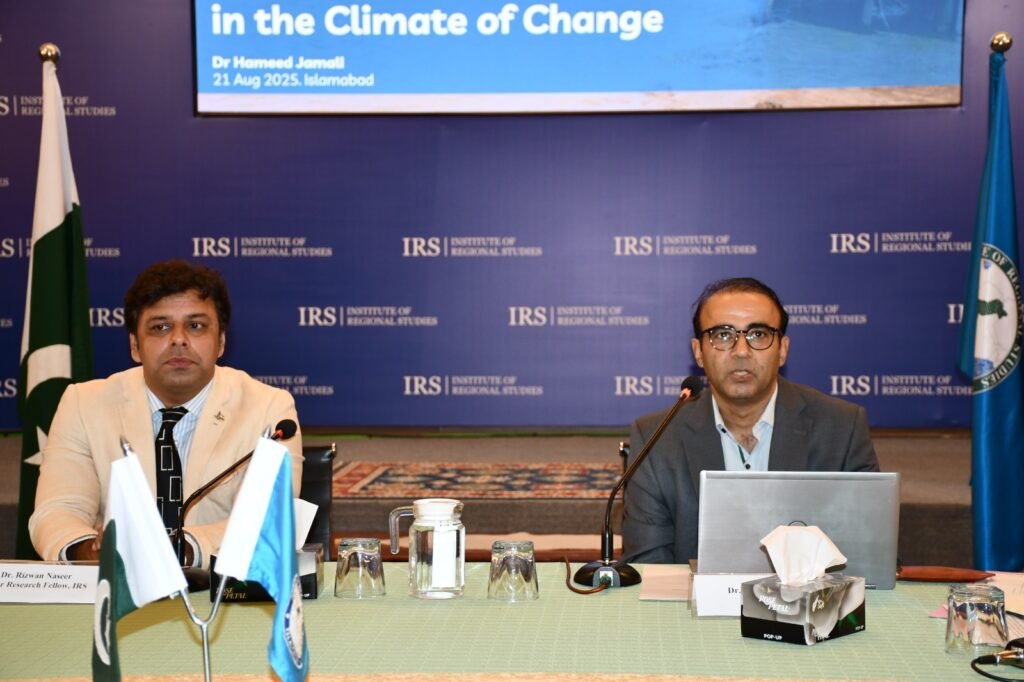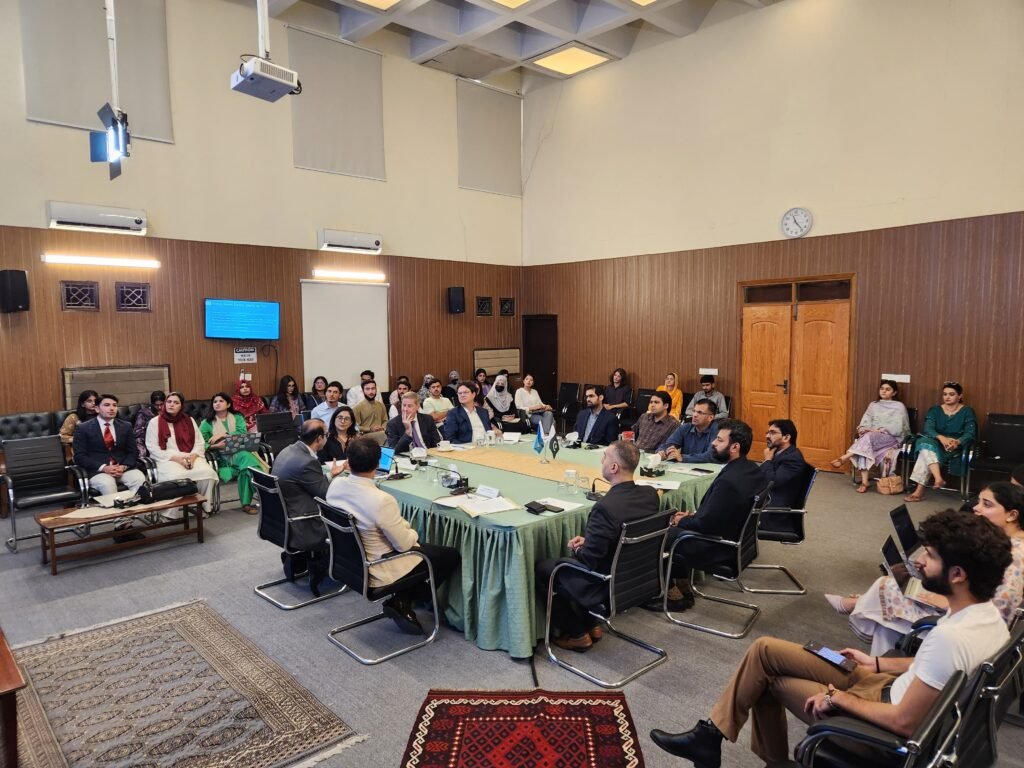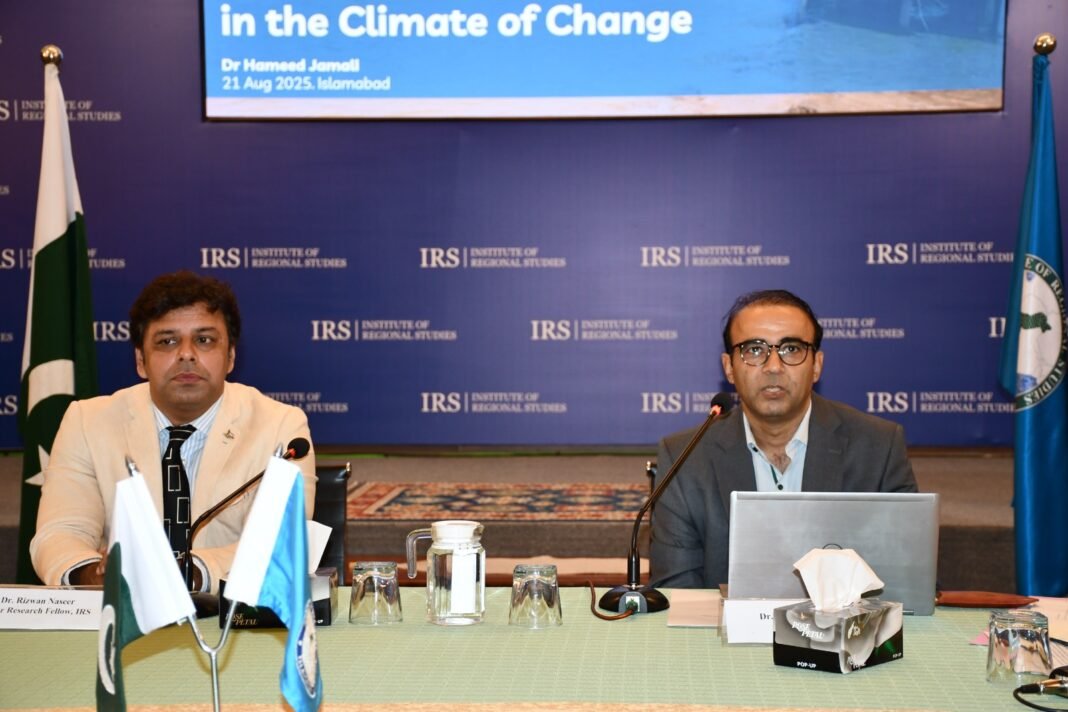
IRS Hosts Talk on ‘Contested Narratives in the Climate of Change: A Case Study of the Indus River Del
Islamabad: “Freshwater outflows to the sea are not a loss; they are critically essential for sustaining communities, fishing, agriculture, and marine ecosystems,” remarked by Dr. Hameed Jamali urging policymakers to move beyond technocratic solutions and recognize rivers as living systems
Dr. Hameed Jamali, Climate Expert working on policy, finance and water governance presented a talk on ‘Contested Narratives in the Climate of Change: A Case Study of the Indus River Delta’, hosted by the Climate Resilience Program at the Institute of Regional Studies. The session explored the competing narratives shaping water governance, climate adaptation, and local livelihoods in the Indus River Delta, which is the fifth largest delta in the world and home to 97% of Pakistan’s mangrove forests. Dr. Jamali highlighted that the Indus River Delta, once a thriving ecosystem, is now on the brink of collapse. Mangrove cover has declined from 600,000 hectares to nearly 100,000 hectares, seawater intrusion has advanced 80 kilometers inland, and over 80% of the delta is now salinized, causing large-scale displacement and economic losses estimated at $2 billion annually. He indicated that the climate change is often invoked as a major cause of the delta’s vulnerability, yet governance failures, poor water management, and unregulated development have played an equally critical role in worsening losses.
The talk examined how dominant narratives, such as framing water flowing to the sea as ‘wastage’, reliance on large dam projects, and climate change as an abstract driver, have overshadowed ecological and community realities. Dr. Jamali stressed the need for ecological water flows below Kotri Barrage, climate-resilient basin-level governance, and community-led water stewardship. He also called for replacing the outdated irrigation-centric model with Integrated Water Resource Management (IWRM) and reframing policies to integrate local ecological knowledge alongside scientific expertise.

Dr. Rizwan Naseer, Senior Research Fellow at IRS said that the Indus River Delta represents a critical ecological zone and a lifeline for millions, yet it faces severe degradation driven by climate variability, upstream water management practices, and socio-economic challenges. He noted that climate change has amplified these vulnerabilities, creating complex policy and governance dilemmas that demand urgent and evidence-based solutions.
Dr. Anjum Rasheed, Head, Climate Resilience Program concluded the session with a strong call for policy reforms that prioritize ecological sustainability, community participation, and resilience against future climate and governance challenges.
Sohail Majeed is a Special Correspondent at The Diplomatic Insight. He has twelve plus years of experience in journalism & reporting. He covers International Affairs, Diplomacy, UN, Sports, Climate Change, Economy, Technology, and Health.






![logo-1[1]](https://globalnewspakistan.com/wp-content/uploads/2025/01/logo-11-e1737618310315-300x187.png)